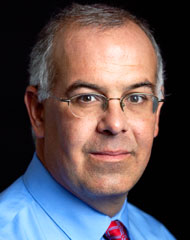Finally, a political commentator says we should stop paying attention to political commentators
Originally posted on December 17, 2013 at theblisspoint.org
New York Times Op-Ed columnist David Brooks, in his first article in three months, writes, “Unless you are in the business of politics, covering it or columnizing about it, politics should take up maybe a tenth corner of a good citizen’s mind.” In Brooks’ opinion, government should occupy the background of everyday life, an unexciting but necessary keeper of the peace, promoter of justice, and supplier of essential infrastructure.
First off, Brooks must believe that the average American cares as much about politics as he and his friends. This is clearly not the case. Voter turnout rates show that, on average, citizens of the US are an apathetic bunch.
Yet even among the minority who do allow political discourse to dominate their lives, I argue that this zealotry is chiefly misguided focus. We elect leaders because we trust their ability to represent our best interests in government––direct democracy, on the other hand, requires enormous time and effort investments from every citizen in order to stay current and well-informed about political issues. So, in theory, picking a few people to do politics as their full-time job frees us from letting politics capture all of our emotional and psychic space.

But in today’s “talk-show culture,” as Brooks calls it, we try to know everything about all the tasks that we are supposed to allow government to handle. For many of us, I believe that this anxiety over the ordinary routines of government shows that we don’t trust our representatives in public office.
This mistrust is not entirely misplaced: administrative agencies are captured by industry and congressmen are owned by their campaign financiers, which makes it much more difficult to have faith that government is going to do its job with the little guy in mind. So the majority of us, who possess little wealth or political power, follow government too closely because if “the Man” screws us over, we at least want to know about it. And those with substantial money and power follow government too closely because they know they can influence policy to work in their favor
Here is my idealistic solution: let us tell government what issues we care about, voice our strong feelings regarding how these problems should be solved, and then step back and let government handle the details. Along the way, proposals can be subject to public comment periods during which stakeholders weigh in, but we need not constantly peer over the shoulders of legislatures and administrative bodies.
Showing up to a meeting of the city council’s public works committee when they plan to discuss how to pave your favorite patch of dirt is healthy democracy. Listening to every commentator’s stance on the Affordable Care Act’s website is not, particularly if you are already insured.
The dream-regime necessary to achieve this representative utopia would be free from the influence of corporate lobbyists and Super PAC campaign donors. We need public servants whose primary, unconflicted interest is just that: serving the public.
These days, we let the mainstream media tell us what issues the government is working on––and even this agenda is routinely misreported. Then we blather on about what the government is doing, should be doing, and shouldn’t be doing in these policy arenas.
Yes, David Brooks, some of us should dedicate less of our emotions and psyches to politics. We should make our voices heard and then trust that policy makers and regulators are listening. Does this mean we should stop reading your column?
